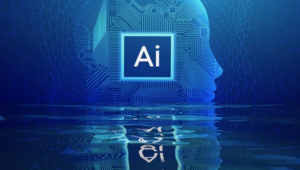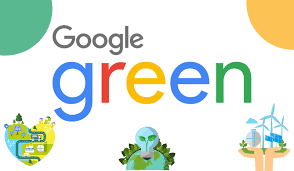Artificial Intelligence, the driving force behind the technological revolution, is silently draining our water resources. The thirst for power exhibited by AI, including advanced systems like OpenAI’s ChatGPT, is causing an alarming increase in water consumption. In this article, we’ll delve into how AI’s insatiable appetite for energy impacts our environment and what tech giants like Microsoft and Google are doing to mitigate this growing concern.
Also Read: NVIDIA’s AI Model to Save Earth, Grabs Funding From NASA
The Energy Demands of AI
Artificial Intelligence, particularly computational-intensive models like ChatGPT, requires substantial processing power, often hosted in vast data centers. These data centers are not only energy-hungry but also water-dependent.

Microsoft and Google’s Environmental Efforts
Leading tech giants like Microsoft and Google are taking steps to address AI’s environmental impact. They are part of a broader industry effort to ensure responsible resource consumption. However, as the tech sector expands, experts increasingly raise concerns about its negative environmental repercussions.
The Escalating Water Consumption
The AI revolution has only intensified AI’s water requirements. According to Microsoft’s latest environmental report, their global water consumption surged 34 percent from 2021 to 2022, reaching nearly 1.7 billion gallons, equivalent to more than 2,500 Olympic-sized swimming pools. Google, another tech giant deeply involved in AI research, saw a 20 percent increase in its water consumption, totaling 5.6 billion gallons in 2022. This substantial increase was attributed to the company’s expanding AI efforts.
Also Read: Environmental Cost of AI Models: Carbon Emissions and Water Consumption

ChatGPT’s Water Usage and OpenAI’s Local Impact
Recent reports reveal that AI systems like ChatGPT can consume about 500 milliliters of water each time a user poses 5 to 50 prompts or questions. Considering the exponential growth of chatbot usage worldwide, this amounts to a significant water footprint, causing alarm among experts and environmentalists alike.
ChatGPT, developed by engineers in California, relies on data centers in Iowa, where water from the Raccoon and Des Moines rivers is used. This illustrates the far-reaching impact of AI on local water supplies. While OpenAI keeps the location of its data centers under wraps, locals in affected areas feel the consequences. Des Moines Water Works reported a nearly 80% increase in residential rates since 2007, reaching $5.19 per 1,000 gallons for city residents.
AI vs. Cryptocurrency Mining
Comparisons can be drawn between AI’s water consumption and cryptocurrency mining’s electricity usage. Cryptocurrency mining, while different from AI, poses similar challenges in terms of resource consumption. For instance, Bitcoin mining’s energy consumption matches all electricity usage in Argentina.
Tech Giants’ Commitment to Change
Microsoft’s Pledge:
Microsoft is actively seeking ways to promote transparency and efficiency at leased sites. They aim to transition to 100 percent carbon-free energy by 2030 and aspire to become a carbon-negative, water-positive, zero-waste company by the same year.

Google’s Sustainability Goals:
Google, too, has set ambitious goals, aiming to achieve net-zero emissions across its operations and value chain by 2030. This involves reducing the reported 10.2 million tons of CO2 produced in 2022. Google also highlights that AI’s energy demand increases more slowly than anticipated, thanks to efficiency practices.
Also Read: NVIDIA’s AI to Save the Planet from Climate Change
Our Say
While tech companies are taking steps toward mitigating AI’s environmental impact, the threat remains. As artificial intelligence capabilities expand, tech firms must relentlessly pursue efficiency gains, adopt renewable energy sources, explore alternative cooling techniques, and enhance transparency regarding resource usage. AI’s thirst for power can be sustainably quenched with responsible management, ensuring a harmonious coexistence with our planet.




